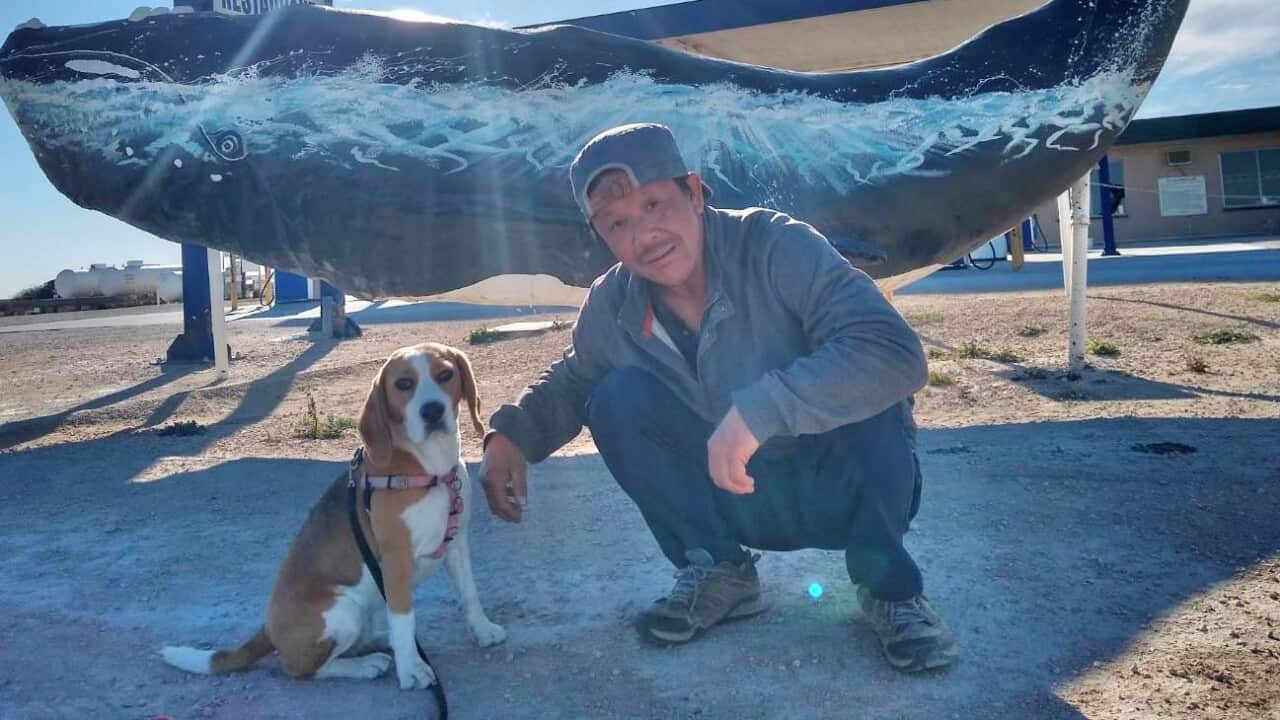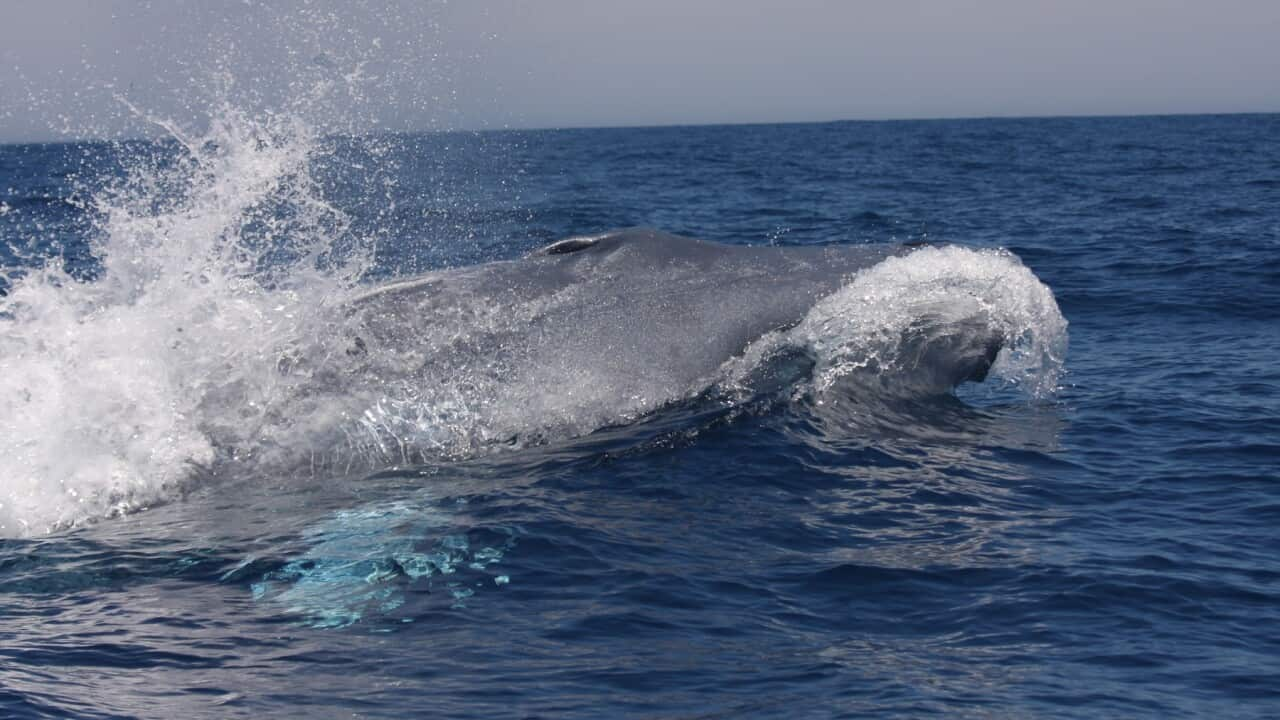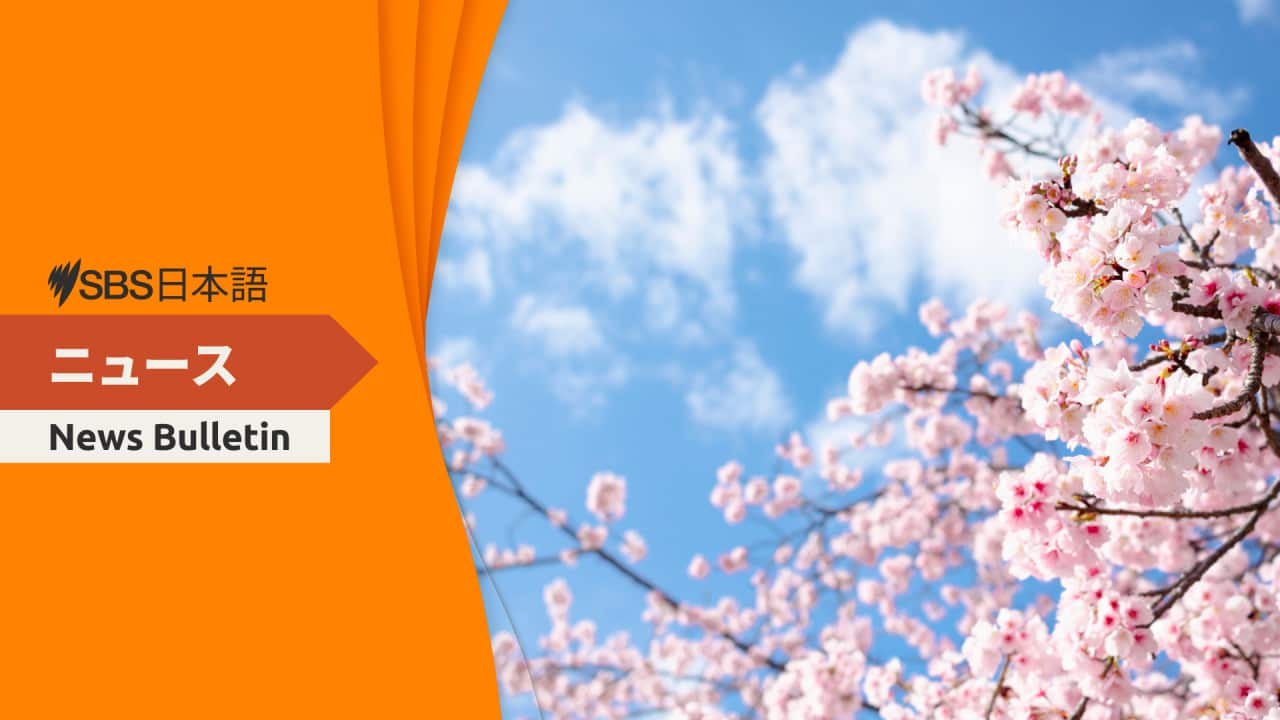Middy Nakajima first arrived in Australia in 1988.
"I was in love with motorbikes, and wanted to do the round of Australia on a bike" he spoke to SBS Japanese.
He then headed off to America and traveled to over 80 countries, before setting his foot again in Australia in 1996, but this time, as his permanent home.
Mr Nakajima says he fell in love with the country's great outdoors, the friendly people, and the easy going lifestyle which was a "perfect match" for his style.
In 2003, he took over IEC Oceania, an eco tour provider, whose destinations includes Blue Mountains, Port Stephens, Huner Valley, and whale watching in Winter, just to name a few.
Although his tours are still postponed due to the pandemic, Mr Nakajima says, this time of the year is the perfect time to see whales migrating north from the Antarctic to the warmer waters of the Great Barrie Reef.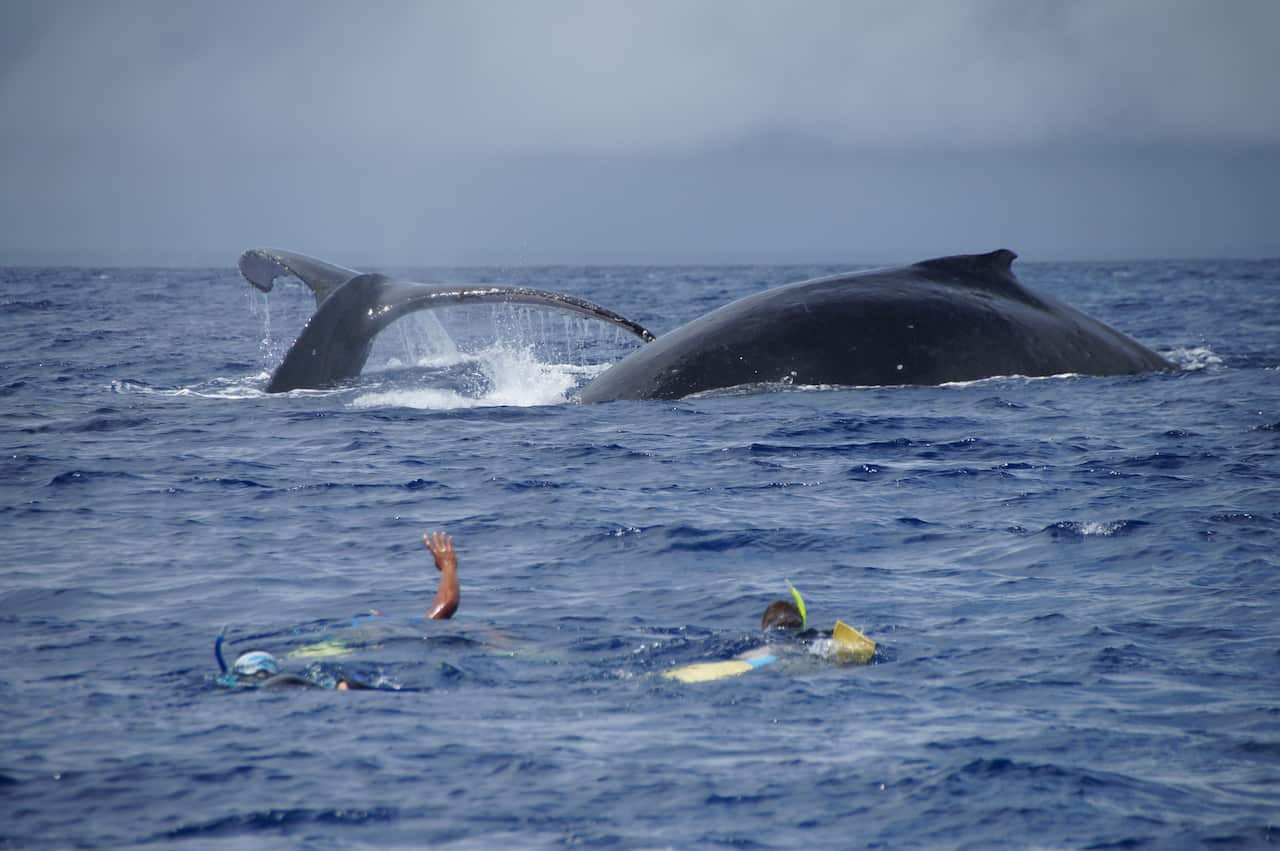 The whales can be seen in the eastern coast of Australia, between May and November every year, and according to Mr Nakajima, over 40,000 whales are thought to migrate during this period.
The whales can be seen in the eastern coast of Australia, between May and November every year, and according to Mr Nakajima, over 40,000 whales are thought to migrate during this period.

Whale season is typically between May and November every year Source: Middy Nakajima
"30 years ago, it was around 500"
The whale census, held annually at end of June, has shown that the population of the whales are on a steady rise, says Mr Nakajima.
This year, the census was held on 26 June, where volunteers gathered at specific locations to spot the whales migrating north.
According to Mr Nakajima, whale watching has been extremely popular prior to covid, such that number of tours and boats have grown over the years.
"To see these gigantic mammals, 12-15 meters long, engage in various actions right in front of you is capturing" he explains.
Due to the large number of whales migrating during this period, the encounter rate of whale watching is over 90%.
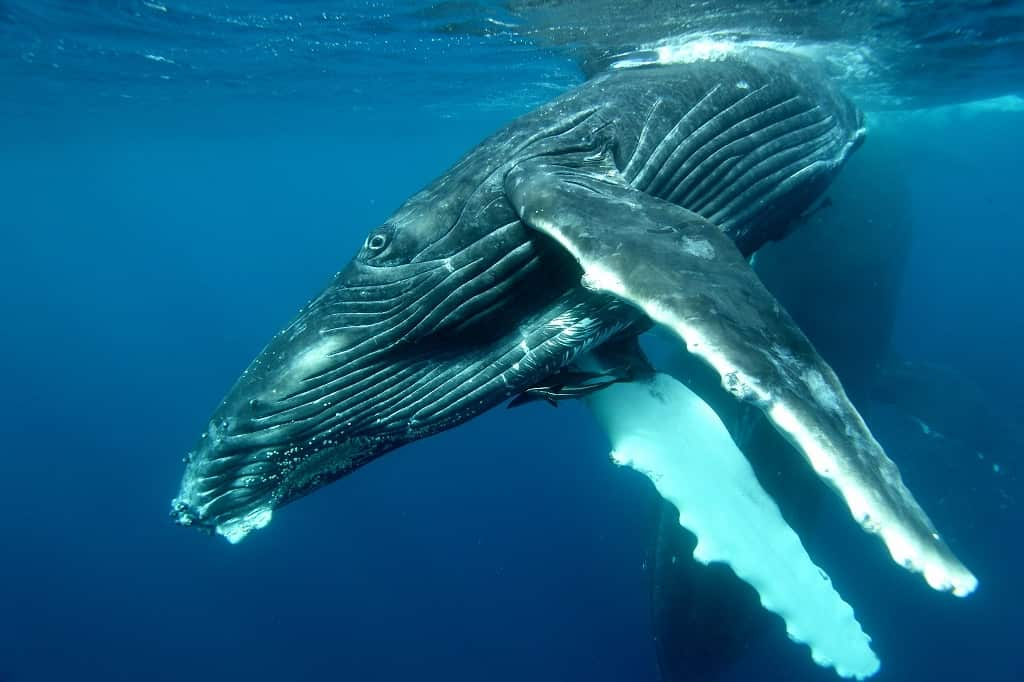
Source: Middy Nakajima
While the tourism industry was hugely affected by the pandemic, Mr Nakajima used this time to go back to his roots of travel. He travelled around Australia in his caravan, with his beloved dog.
"Travel is necessity in life" he says.
"It can be a treasure of a life-time"
And this has been the core to Mr Nakajima's business. To provide tours that will stay in people's memories for 10-20 years down the track.
To listen to Mr Nakajima's full interview in Japanese, click below.
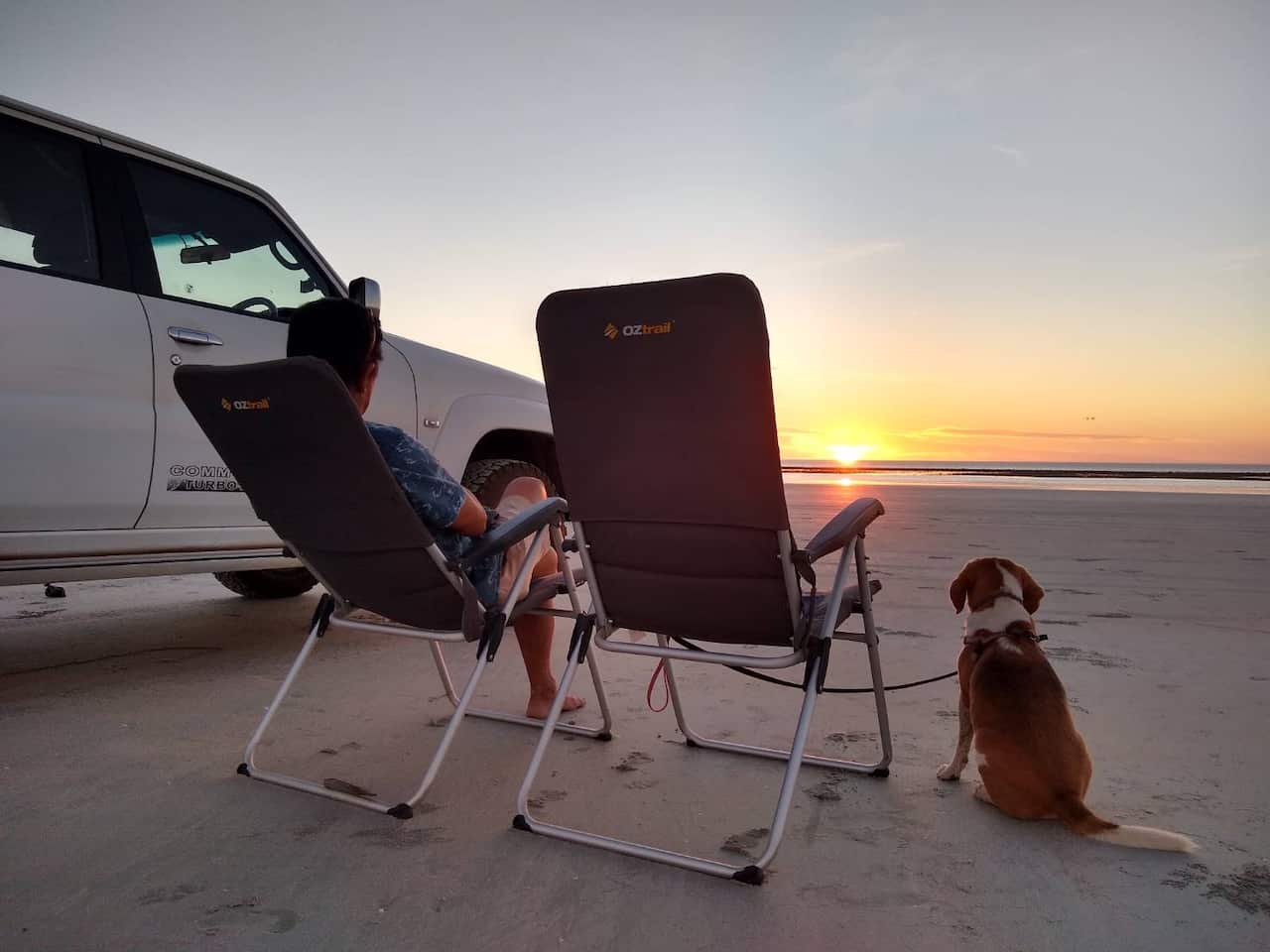
"Travel is a necessity of life" Source: Middy Nakajima
Listen to SBS Japanese Radio on Tue, Thu and Sat from 10pm(AEST)
